Many thanks for showing interest in joining the RHA’s collective claim.
Before your business can opt in formally to the claim and become a claimant in the litigation, you first need to complete a few questions about your business. This process has a few steps which are outlined below:
After you have completed and submitted your answers to the questions, you will receive an email detailing the further steps that you need to take in order to opt in to the claim and the documents that you need to agree to. Please contact us if you do not receive this email within 14 days.
You can join the RHA’s collective claim if:
Once you have completed the questions below, you will be sent an email with a link which will then take you to the formal part of the sign-up process.
There is a conflict of interest between operators who purchased new trucks and those who purchased used trucks. Broadly speaking, new truck operators will want to argue that the higher prices they paid for trucks as a result of the cartel were not passed on when they resold their trucks. Used truck operators will want to argue that new truck operators did pass on the higher prices when they resold their trucks and that the overcharge therefore sits with used truck operators. Because of this conflict, there are strict information barriers in place between the RHA and RUTL and each of the RHA have different legal teams and expert economists.
The RHA and RUTL have an insurance policy to cover the risk of paying legal costs to the truck manufacturers if the Claim is not successful. That insurance policy is shared. That means the RHA cannot recover legal costs from RUTL and vice versa, in the event one succeeds in its arguments against the other. The advantage to this is that (a) the RHA and RUTL both avoid the risk of having to pay the other's legal costs, and (b) neither has to expend additional funds to buy further insurance, which would materially reduce any damages payable to the claimants (as it would increase the legal costs of the claim). However, the downside to this is that if one party incurs costs successfully defending an argument from the other, it would not benefit from recovering those costs from the other, and so the overall pot of funds available to distribute to the relevant sub-class would be lower than it may have been. However, the RHA and RUTL both believe the likely cost to the class is lower in this shared policy arrangement and that this arrangement is overall in the best interests of claimants
The Competition Appeal Tribunal has considered these arrangements and confirmed that they are acceptable.
Further detail on the conflict is set out from page 4 of the Rule 81 Notice here.
The impact of the cartel on the prices of new and used trucks and the relationship between the two will be considered by the RHA and RUTL’s separate economic experts and the Tribunal will ultimately determine the matter (unless the case settles before final judgment).
The whole process (including answering the questions below) should be quick and straightforward but it is important that you complete all the steps and answer all the questions as fully and accurately as possible.
Give us a call:
08450 30 50 30



Registered Address:
RHA
RHA Worldwide House
Thorpe Wood
Peterborough
PE3 6SB
t: 08450 30 50 30
w: www.rha.uk.net
e: truckcartel@rha.uk.net
Backhouse Jones
The Printworks
Hey Road
Clitheroe
BB7 9WD
t: 01254 828 300
w: www.backhousejones.co.uk
2017 ® RHA & Backhouse Jones Solicitors. All rights reserved.
By 52 Digital